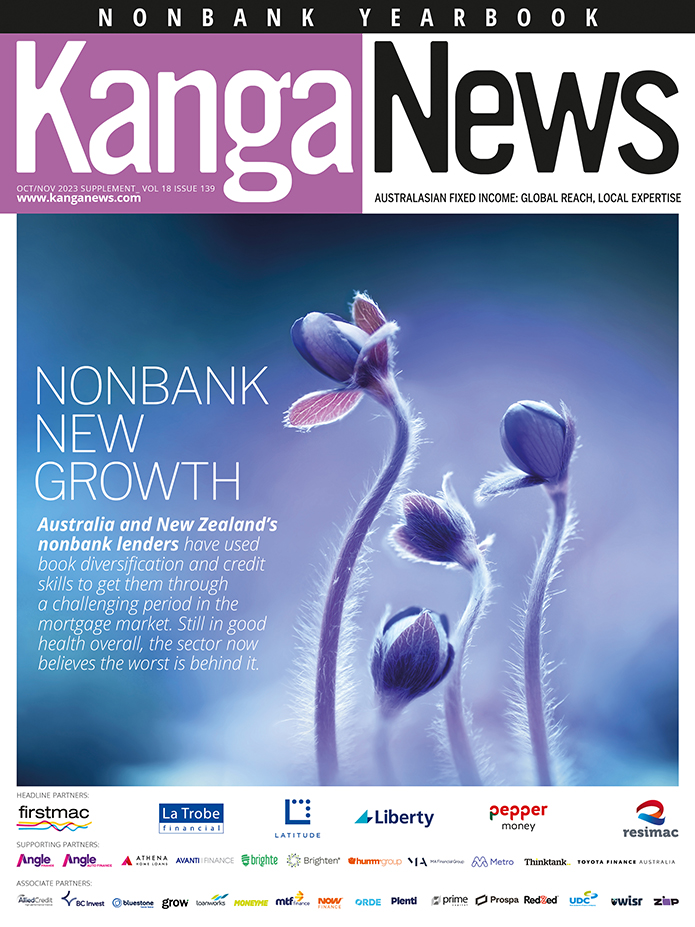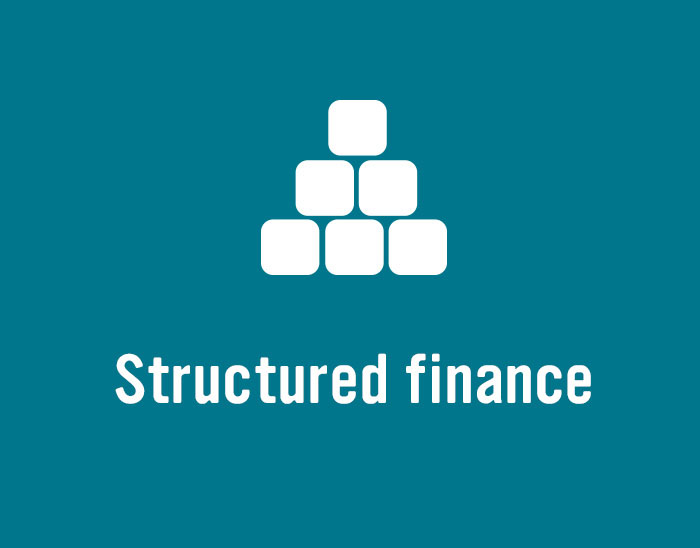
New opportunities for New Zealand securitisation
A more optimistic tone has emerged in New Zealand’s securitisation market on the back of two primary-market transactions and the emergence of a potential large-scale new issuer. The tone is markedly different from the first half of the year, when market participants did not expect to see deal flow in 2020.
Chris Rich Staff Writer KANGANEWS
Matt Zaunmayr Deputy Editor KANGANEWS
Resimac reopened the New Zealand residential mortgage-backed securities (RMBS) market with a transaction that had been pencilled in to its execution window for pricing at around the final date even prior to the COVID-19 crisis. Deal sources say surprisingly positive housing data and a new rates environment supported execution.
The NZ$300 million (US$198.3 million) Versailles Trust Series 2020-1 deal priced on 4 September with BNZ and Westpac New Zealand as arrangers and lead managers. It takes Resimac’s total New Zealand RMBS issuance to NZ$950 million.
Avanti Finance followed with its own RMBS deal on 9 October – a NZ$250 million transaction via Westpac that was the issuer’s largest ever. Sound origination standards and technical tailwinds have caused interest in the asset class to jump, Avanti says.
While the Australian RMBS market has recovered from the shock of COVID-19 to support regular issuance, Resimac’s securitisation was the first public deal in the New Zealand structured-finance market for 2020. It printed almost a year after the last local deal – a NZ$250 million auto asset-backed securities trade from Eclipx.
Resimac had planned a New Zealand deal around this time of year as part of its regular issuance intentions for 2020, Andrew Marsden, general manager, treasury and securitisation at Resimac in Sydney, tells KangaNews. The issuer is well funded but wanted to demonstrate availability of multiple capital-markets options.
“While we still had strong support with our banking facilities, we thought it was important to demonstrate some resilience of our RMBS programme and proceed with the deal. It is a fundamental piece for our New Zealand business and our growth aspirations in the sector,” Marsden reveals.
HOUSING REBOUND
Simon O’Connell, director, corporate and structured finance at Westpac in Auckland, tells KangaNews uncertainty about the impact of COVID-19 on the local economy lingered even as the immediate health threat of the pandemic largely dissipated earlier in the year. Most economists continue to forecast a weaker near-term economy and a fall in house prices, but recent economic data have surprised to the upside, especially in the housing market.
The August iteration of Real Estate Institute of New Zealand (REINZ)’s monthly house price index (HPI) – the same month as a COVID-19 outbreak and subsequent lockdown in Auckland – shows house prices increasing by 1.9 per cent. This is the third consecutive monthly rise after decreases in April and May. In fact, house prices actually rose by 2.6 per cent between March and August 2020.
With a low number of mortgages in arrears and house prices rising, O’Connell says investors are increasingly seeing relative value in RMBS.
Avanti’s Auckland-based group treasurer, Paul Jamieson, reveals that arrears in the issuer’s lending book have actually improved from pre-crisis levels due to customers saving during and subsequent to New Zealand’s lockdowns, and rapidly repaying debt obligations.
Jamieson tells KangaNews the Avanti book’s strong performance, as well as generally improving market confidence and tailwinds behind RMBS issuance in particular, led to robust investor support.
“Some investors we have been engaged with in the past are now more inclined to participate in transactions. Investors are hunting for yield and more are turning their attention to securitisation, including KiwiSaver funds – which are growing rapidly,” Jamieson says.
DEAL DYNAMICS
Reintroducing deal flow was a manageable process for deal leads. With a relatively small amount of securitisation issuance in the New Zealand market each year, Mike Faville, Auckland-based head of debt capital markets at BNZ, says it is normal for price discovery to begin by looking at the more liquid Australian market as a starting point.
This meant the lack of previous issuance in 2020 was not a major impediment to Resimac’s return. The deal team was also able to use the same issuer’s 2019 RMBS in the price discovery process, Faville adds.
All four major banks in New Zealand now have negative rates factored in their outlooks for 2021 – an outcome which, Faville believes, could spur demand for securitised product.
“The investor base for this asset class has been relatively narrow in the past but investors are certainly looking wider for where they can achieve returns,” he explains. “In bringing the trade to market Resimac offered a zero-coupon floor, which gave investors comfort with the backdrop of a lower cash rate.”
Although the subset of New Zealand investors that participate in the RMBS space is small, leads say interest and participation in recent deals was pleasingly high. Resimac’s final book comprised 14 investors.
Meanwhile, Jamieson says Avanti met around 20 investors prior to launching its deal, including some KiwiSaver accounts that have not previously invested in Avanti securitisation. He adds that the top and bottom tranches in the capital stack were the most difficult to fill – as Avanti expected going into the deal process. However, the hurdles were not too onerous and the issuer was able to execute the transaction with 2-4 times subscription across all tranches.
Resimac upsized its deal to NZ$300 million from NZ$250 million at launch. Domestic investors took most of the deal, though only by a small amount: 44 per cent was sold offshore, including 19 per cent to Australia. Real money dominated the book.
Marsden says the increase in offshore participation represents an acknowledgment that New Zealand’s management of the health crisis has been successful. In this context, he adds that the underlying growth opportunities for Resimac in New Zealand have not materially changed despite COVID-19. The lender has an entrenched focus on the nonconforming market but also continues to explore ways in which it can offer a competitive prime product.
“Being competitive with the major banks in New Zealand is the real growth opportunity for our business. Over time, this will allow us to establish a separate prime shelf for funding as the Versailles pool is a mix of prime and nonconforming,” Marsden adds.
The nonbank funding market in New Zealand has also gained a new player. The long-awaited sale by ANZ of its subsidiary, UDC Finance, is likely to result in public term securitisation in the next year or two at most (see box).
UDC sale a potential boon for New Zealand securitisation market
UDC Finance’s sale to Shinsei Bank by ANZ has established what KangaNews understands is New Zealand’s largest warehouse facility. The issuer expects eventually to bring public term securitisation deals to New Zealand and could also access funding from further afield.
The warehouses – a NZ$1.2 billion (US$773.5 million) facility for UDC’s auto loans and a NZ$1.1 billion facility for its equipment loans – were a staple of the funding package supporting UDC’s sale.
ANZ and Deutsche Bank were arrangers, while the warehouses have six funders: the Australasian major banks plus the Sydney branches of Royal Bank of Canada and Societe Generale. Russell McVeagh acted for UDC in the structuring of the warehouses as well as for the M&A transaction.
The warehouse facilities account for around two-thirds of UDC’s funding, with the balance provided predominantly by Shinsei Bank. Mark de Ree, Auckland-based treasurer at UDC, says the facilities provide a strong, stable, cost-effective and long-term funding base with which it can continue to provide lending to the New Zealand economy.
Issuance timing will depend on the ongoing performance of the economy and markets through the COVID-19 period, and we will also be giving appropriate time to ensure any processes and reporting involved with the new facilities is bedded down before considering a term transaction.
MARKET CONTEXT
A further tailwind behind the securitisation asset class is lack of supply of New Zealand dollar financial institution (FI) debt. Since March, there has been just one local FI deal, from China Construction Bank New Zealand Branch, as deposit flows and government support have limited FI senior funding needs.
Market participants have been targeting growth in the securitisation space for several years but say the tailwinds behind it have likely never been as strong as they are now. “RMBS is a known asset class backed by a known, tangible security. Any investor education needed is typically just on the originator’s servicing and processes,” comments Jamieson.
Avanti says it is well positioned to take advantage of increasing interest in New Zealand RMBS, as it has moved to annual issuance and has further growth plans for its residential-mortgage and auto lending.
Jamieson says the issuer’s plan is to continue growing the volume of its annual RMBS transactions before potentially increasing issuance frequency. Meanwhile, an auto asset-backed securities deal remains on the cards but is more likely to come in 2022 once Avanti has solidified its origination pipeline and asset base.
At the same time, New Zealand’s nonbank financial-institution sector has not benefited from the same degree of government support and exemptions from regulatory requirements afforded to local bank lenders or to their Australian nonbank peers.
For instance, while banks were exempted from some specific requirements of New Zealand’s Credit Contracts and Consumer Finance Act in relation to COVID-19 relief provided to borrowers from 1 April, nonbanks have not been able to apply a blanket rule for hardship applications.
O’Connell says, though, that this has led to nonbanks being nimbler and more prudent when assessing applications and, as a result, better performance in their books.
He explains: “There was a peak in COVID-19 hardship in March and April but this has dropped dramatically across all our nonbank borrowers.” In order to streamline engagement with investors, O’Connell says Resimac’s transaction did not include any COVID-19 hardship cases.

nonbank Yearbook 2023
KangaNews's eighth annual guide to the business and funding trends in Australia's nonbank financial-institution sector.










